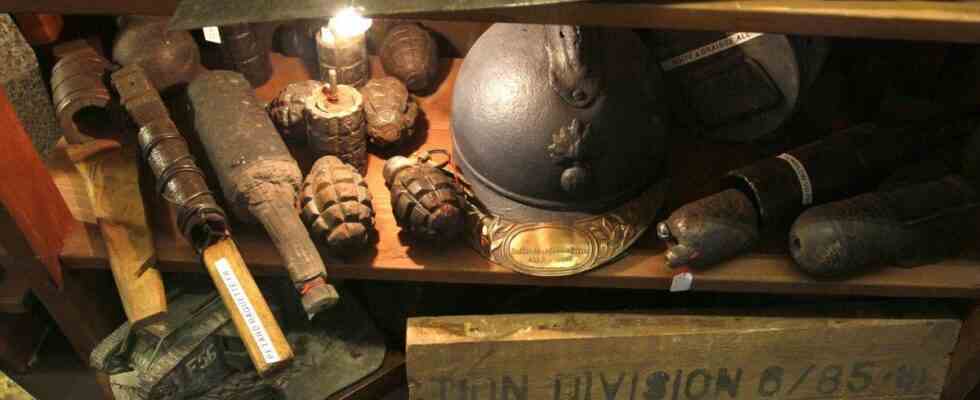Two 50-year-olds suspected of having looted First World War objects, including weapons and soldiers’ plates, from battlefield sites near Colmar (Haut-Rhin), were taken into custody on Tuesday. It was the investigators of the Central Office for the Fight against Trafficking in Cultural Property (OCBC) and the gendarmes of Colmar who arrested them. The investigation, opened by the Colmar prosecutor’s office, concerns archaeological excavations without authorization, destruction , degradation, deterioration of the archaeological heritage, theft of archaeological property, unauthorized possession of weapons and endangering the lives of others…
During searches at the homes of the two men, a veritable arsenal was discovered, ie 20 kg of cartridges, 22 shells, several dozen shell casings, nine rifles and pistols, gas masks and bayonets. Investigators also got their hands on twelve grenades, including three “potentially dangerous” requiring the intervention of deminers.
“Passionate collectors”
“We also found identification plates of soldiers,” said Colonel Hubert Percie du Sert, head of the OCBC. They will be used by the Regional Directorate of Cultural Affairs (Drac) of the Grand-Est region, which took part in the investigation, in order to find the families. Other objects of daily life (bowls, bottles, cans, gourds, crockery) were also seized. “These lootings constitute a colossal loss for our cultural identity”, underlined Colonel Hubert Percie du Sert The two men are “passionate collectors” but “we cannot excavate without authorization, especially battlefield sites”, said he continued.
According to the Heritage Code, “no one may use equipment allowing the detection of metallic objects, for the purpose of researching monuments and objects that may be of interest to prehistory, history, art or archeology, without having previously obtained an administrative authorization”. The destruction, degradation or deterioration of the archaeological heritage is punishable by seven years’ imprisonment and a fine of 100,000 euros, according to the Penal Code.

